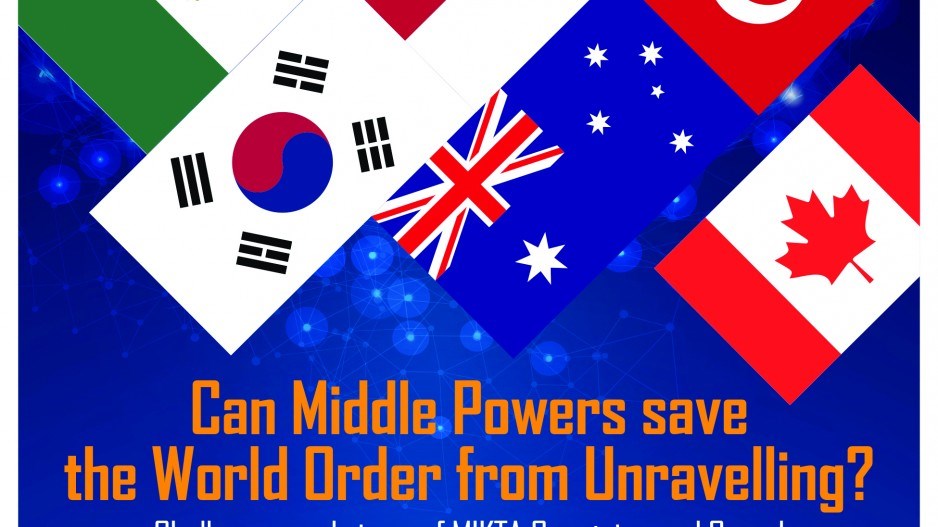As the first direct Air Canada (TSX:AC) service linking Vancouver to Melbourne landed at Vancouver International Airport (YVR) in December, the chatter among the crowd celebrating the inaugural flight inevitably included excitement over the tourism boost the new route is expected to bring.
But there was also an unusual degree of excitement about what the flight could mean for business. Several officials pointed to Melbourne’s growing role in global business – one that could soon rival Sydney’s in several areas – as a major element for the high hopes associated with the Vancouver-Melbourne route.
“I think, with Melbourne, it won’t be just the tourism, given it has more of a business side,” said Nerella Campigotto, president and founding director of the Canada, Australia & New Zealand Business Association. “A direct flight definitely encourages smaller companies to go on business-development trips in both directions.
“The Australia business brand is flying under the radar a little bit here,” added Campigotto, a Melbourne native. “Lots of Canadians think of Australia from a tourism perspective … and it’s not a huge market, but it’s still an important market, especially considering Australians being used to having Asia in their backyard. It means we have a lot of people with experience doing business there, and for companies wanting that market, Australia is a great stepping-stone.”
That message, reminding Canadian companies to look at markets other than the behemoths like the United States, China, Japan and the European Union, has been on display in Vancouver recently, as “middle-power” economies like Australia are grouping their efforts to engage B.C. for more discussion in hopes of creating more business opportunities.
The most vocal of these groups is MIKTA, an informal partnership named for its participants, Mexico, Indonesia, South Korea, Turkey and Australia. The organization held a series of events in Metro Vancouver in 2017 to gauge interest. The main event, a panel on whether these “middle-power” economies can keep the global order from unravelling, was held at the University of British Columbia (UBC) on November 21 and drew over 100 people, more than double the original estimate.
“I think we try to let people know about MIKTA all the time,” said Gunn Kim, consul general of South Korea in Vancouver, who noted the partnership has been in place since 2013. “But [in 2017], it caught people’s attention in Canada because of some of the situations we are seeing in the world. I think people are waiting for someone to step up, and when there’s some movement on that front, people become interested.”
The five MIKTA members share the “middle-power” distinction. All five are members of the G20, but none is part of the more high-powered groupings like the G7, of which Canada is a member, and BRIC (Brazil, Russia, India and China). Top-level ministers of the countries meet regularly to discuss areas of joint interest, from energy governance and security to trade and sustainable development.
UBC Asia-Pacific affairs professor Paul Evans, who moderated the UBC panel discussion on MIKTA, said the grouping is interesting not just because of the geographical disparity among member countries, but also because of the varying degrees of economic, social and political development among its ranks. And while Evans said it is unlikely that Canada will join the group, it is worth considering its members’ perspectives, considering Canada’s similar position on the global stage.
“[MIKTA] is something that’s not widely known, and we would not have paid much attention to it in Canada until very recently,” Evans said. “That very recent moment would be the Donald Trump administration in the United States. Suddenly, the necessity for talking, thinking and perhaps acting on how to maintain a rule-based trading order in the face of America taking steps away from the leadership role has given new energy to MIKTA and other ‘middle-power’ discussions.”
He added that Canadian attention has also been focused on this country’s role in an evolving global environment, especially with regards to Asia, highlighted by a couple of high-profile events involving prime minister Justin Trudeau in the region: Trudeau’s no-show at a meeting in Vietnam of the leaders of TPP-11 (the remaining nations of the Trans-Pacific Partnership after the United States backed out under Trump), and the Prime Minister’s unexpected failure to launch formal free-trade talks with China during a face-to-face meeting with Chinese Premier Li Keqiang.
“Just even in the economic realm, some big things are changing,” Evans said, noting the North American Free Trade Agreement’s potential changes after renegotiation. “It was in that context that we thought it’d be important to learn more about MIKTA. I don’t think it’s the kind of thing Canada would be lining up to join, but it’s the kind of thing that many Canadians, including some in government, would see as a dot that needs to be connected, in order to withstand some of the big changes that are coming.”
Kim admitted MIKTA itself does not offer a consolidated economic platform. He said the five countries have significant differences that need to be discussed and resolved before presenting a coherent picture. But he predicted that, in five years’ time, markets like Vancouver will be hearing more about the group and its impact, considering the world’s need to have different voices guiding trade, investment and economic policies.
“MIKTA is not the solver of all world problems,” Kim said. “It’s not the leading force in the international scene. But we are a small part in the international movement that would like to contribute to the well-being of the people of the world. So for that purpose, I think we’ll do what we have to do, and I’m sure there will be more interest in Vancouver by that time.”




